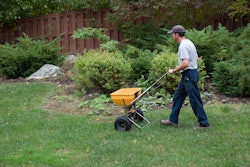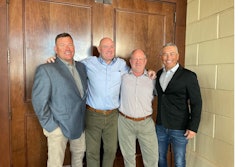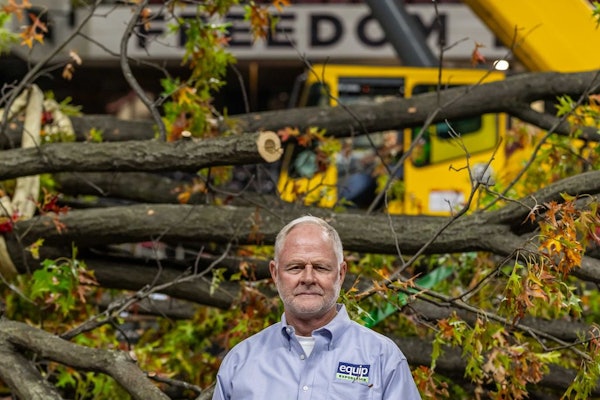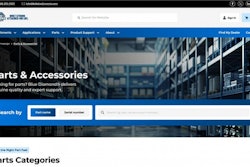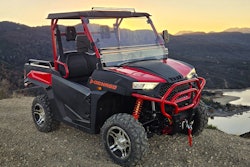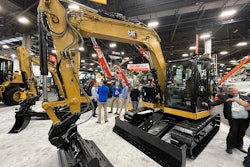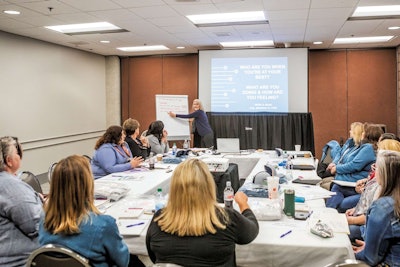
I had the pleasure of facilitating two research groups at last year’s Expo in Louisville—groups of women leaders and companies that conduct business in the West. Both groups discussed current industry trends and their impact on the business. Trends here mean consistent drivers of success and market leadership, and a team’s ability to identify, leverage, and embed those trends into their strategy. That is what allows them to create unique business models and dominate their marketplace.
Embedding trends into your strategy must be an ongoing process and a part of your culture. Trends consistently present opportunities to you. To leverage their power, you must understand what they are so you can harness that power and create a competitive advantage. A common misunderstanding is using the words trend and fad interchangeably. They are not the same. A fad is a short-term event, product, or service that usually affects a single industry. A fad is often referred to as a flash in the pan, a one-hit-wonder. Trends occur because of changes in customers’ needs, behaviors, or expectations, and cross multiple industries while lasting a long time.
An example of customer needs and behaviors that are changing include increased awareness and desire for greater safety, health, and self-improvement. Other customer behavioral changes include a need for local entertainment with family, friends, co-workers, and community.
Many of these changes have been driven by the pandemic and social unrest. The ability of your organization to address these changing customer needs, while identifying the gaps that exist between what customers want and what the marketplace offers, is where trends emerge, opportunities unfold, innovations occur, and companies grow.
Both groups spoke extensively about the trend of sustainability, which has deep and wide roots in our industry and covers several sectors including plant material, hardscapes, equipment, technology, and regulations. The trends discussed that met customers’ changing needs and compliance—and yielded profits—were electric, battery-powered, propane, solar, robotic, and low-noise equipment and technology. Popular were drones, man-less, electric, and propane mowers, electric blowers, mobile app-enabled smart irrigation controllers, water sensors, drip-irrigation, and LED lights, and solar energy-charging stations.
Plant trends included the use of natives, succulents, xeriscapes, and rain-harvesting to reduce water consumption and increase plant health. Vegetable and edible gardens aligned with the health and wellness trend, as did reduced and chemical-free weed and pest solutions. The trend of installing perennials versus annuals means less drive time, gas, and maintenance on vehicles, and is the right thing to do for customers.
The groups said that doing good was good for business.
The backyard and outdoor living trends of creating outdoor rooms with barbeques, pergolas, patios, sports courts, water features, colorful LED lights, and sound for entertainment, dining, athletics, and gatherings are mega-trends. Outdoor offices, showers, and stress-free zones are trends fueled by the pandemic, as are water features, pools, natural stones, and hardscapes, which help people relax.
The pandemic created a safety-scaping opportunity for contractors to offer sanitization services, while the trend of increased regulations created opportunities to expand into erosion control, stormwater management, and engineering services.
Technology trends included the acceleration of digital touchpoints, and the use of software, multi-media, mobile apps, video, artificial intelligence, WiFi, QR codes, and teleconferencing tools to recruit, interview, onboard, sell, market, train, meet, purchase, research, and track inventory and hours. And trending up was charging for more services like consultations, design, and permitting.
The best way to profit from these trends, and those coming down the pike next, is to build a trend-spotter network inside your company. And attending events like Equip Expo in Louisville this October will provide a plethora of insights on trends and growth opportunities.
The teams that can spot and leverage trends will dominate their markets. Do you want to be a follower or a trendsetter?
Editor's Note: This article was written by Judith M. Guido, chairwoman of Guido & Associates. It originally appeared in Equip Magazine.
